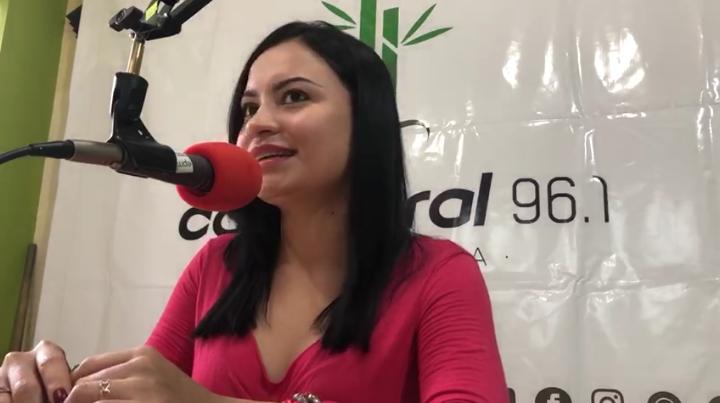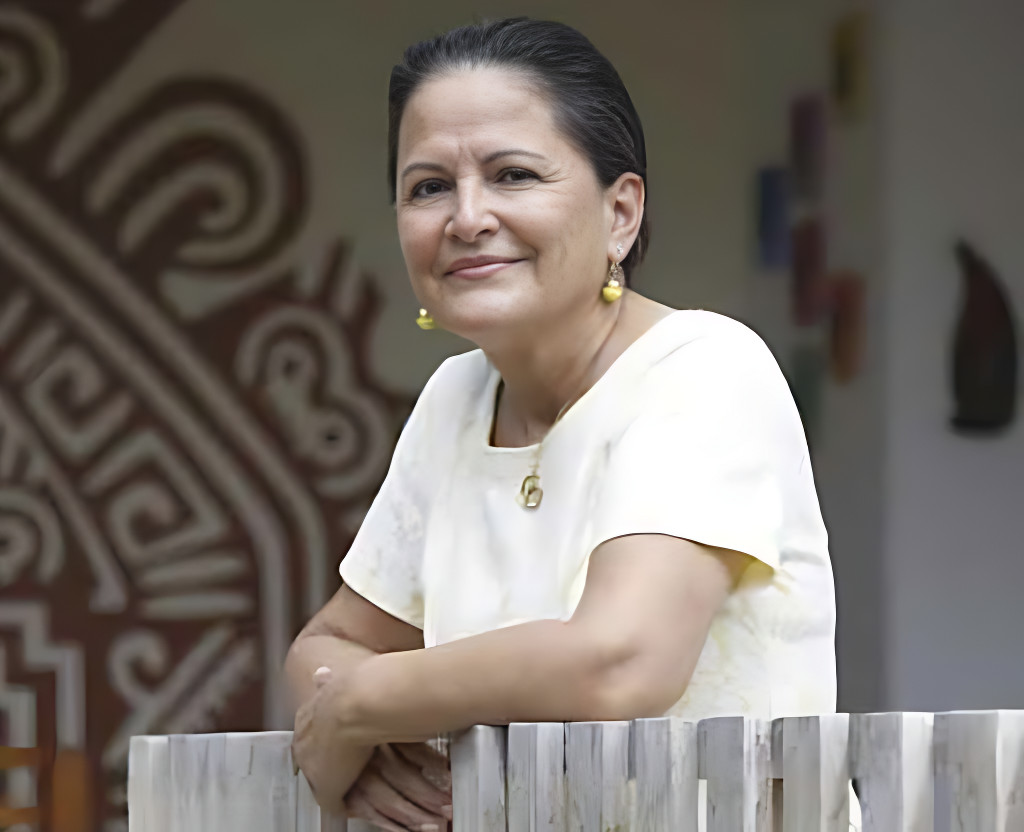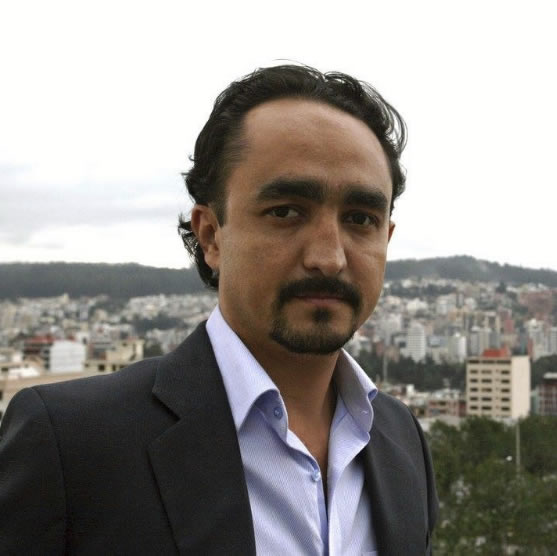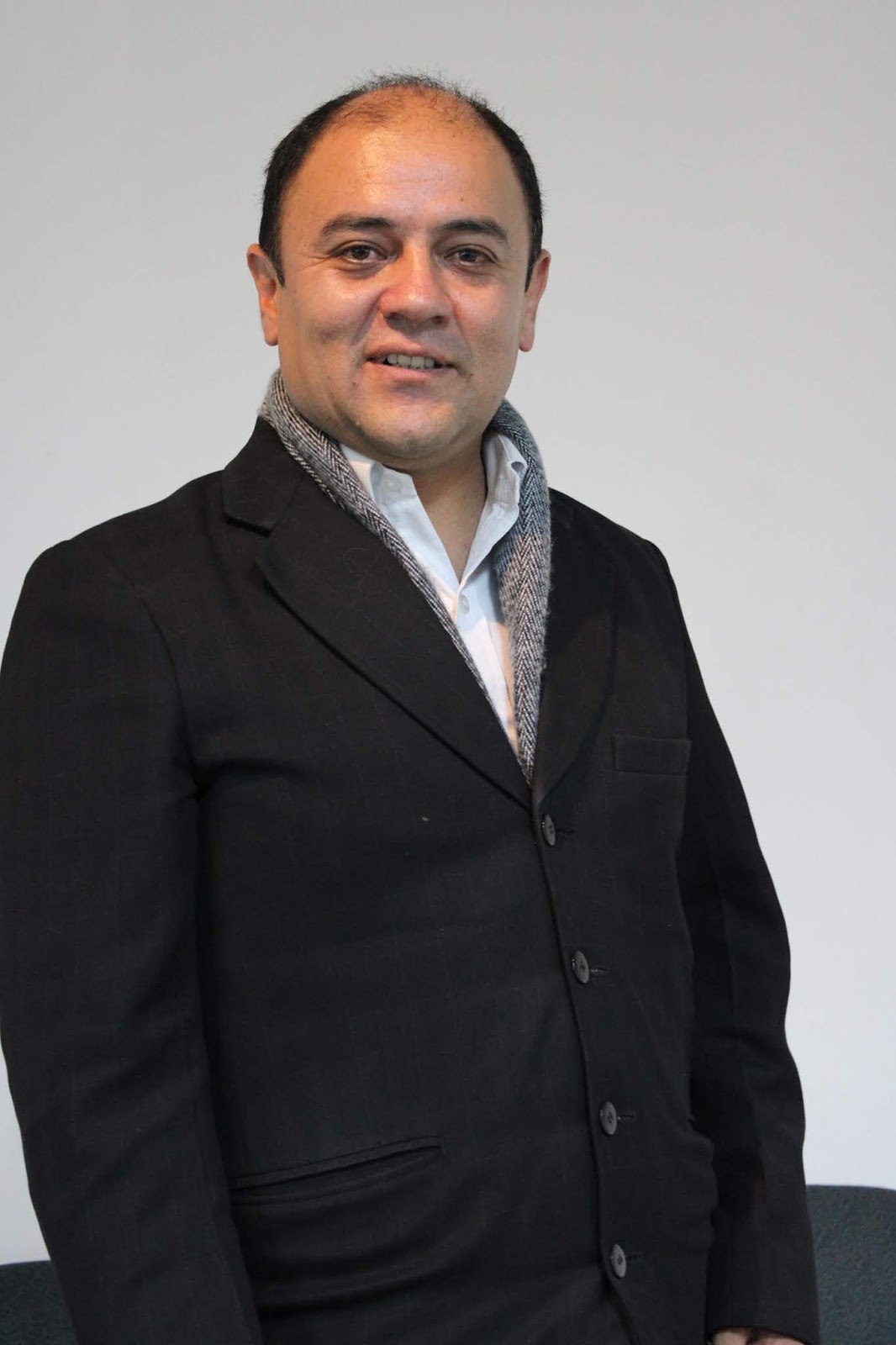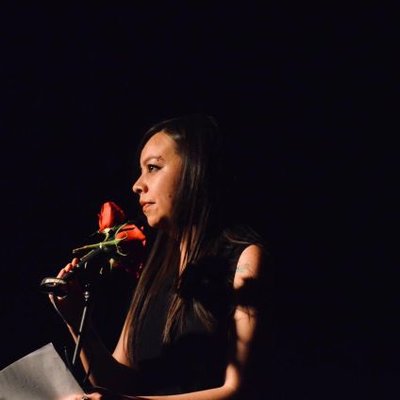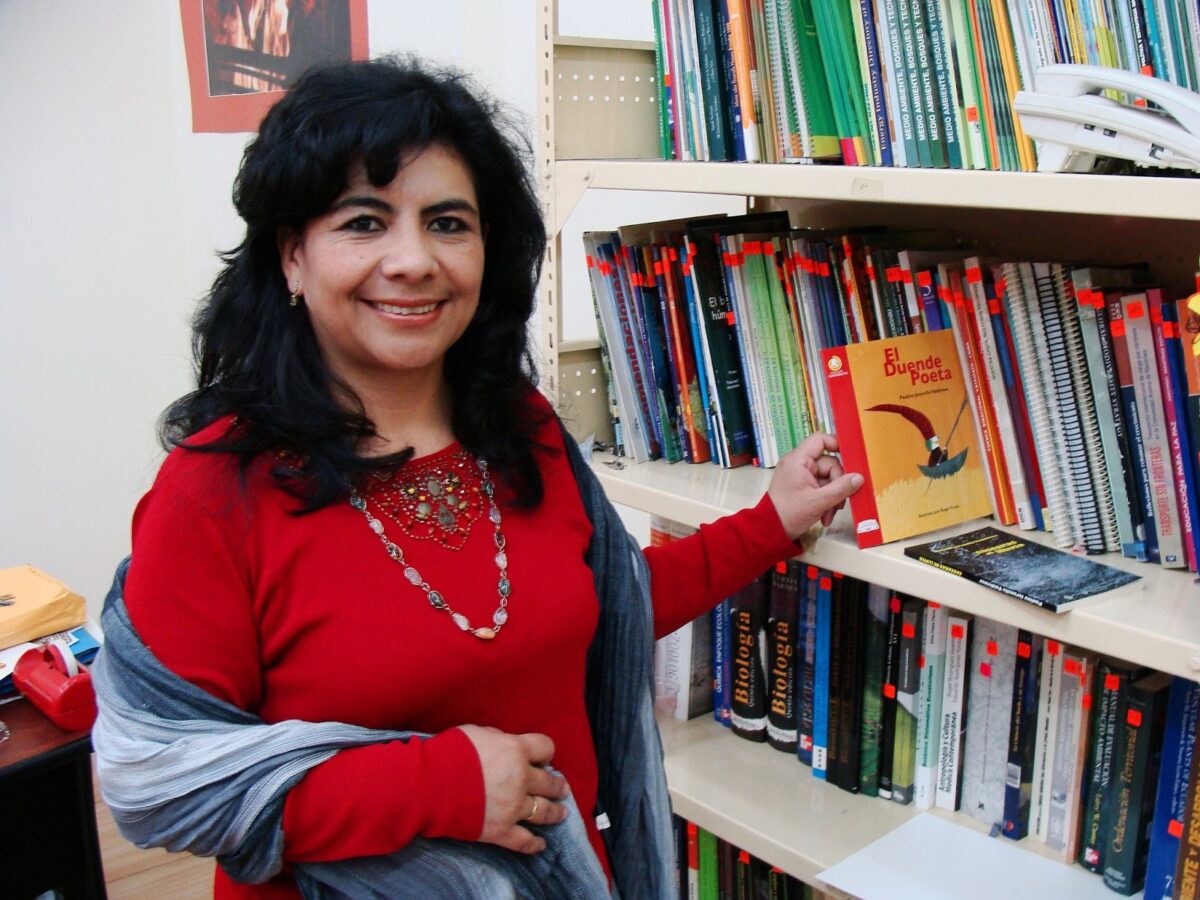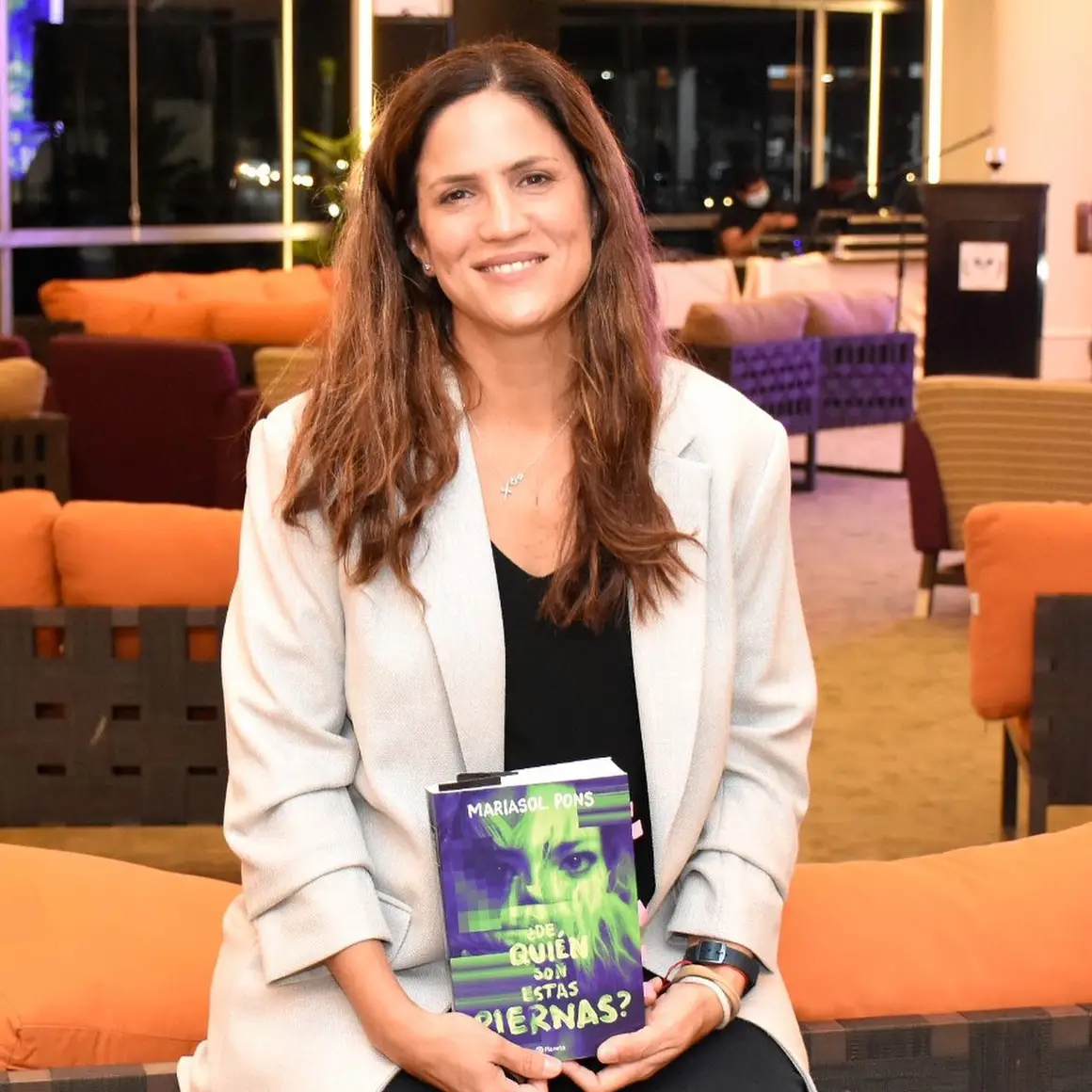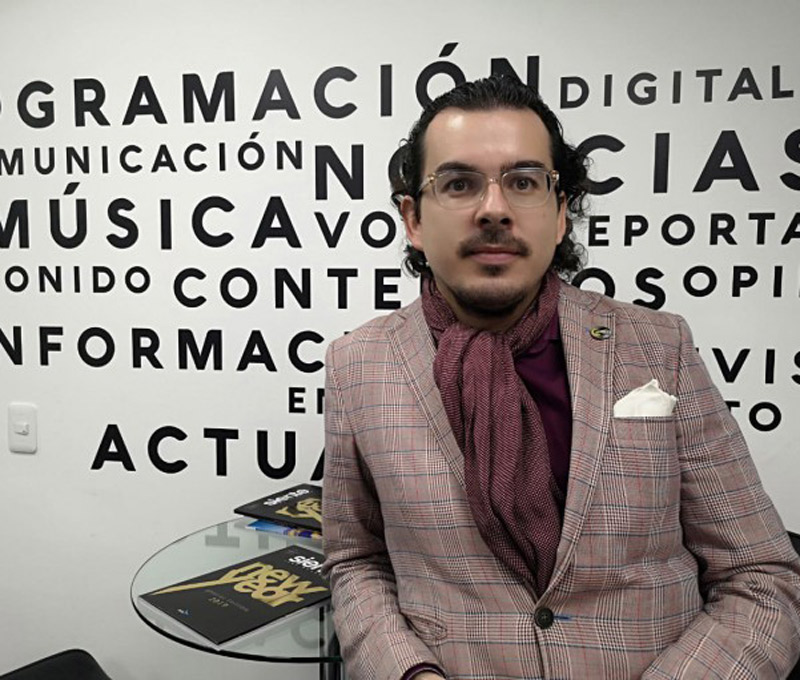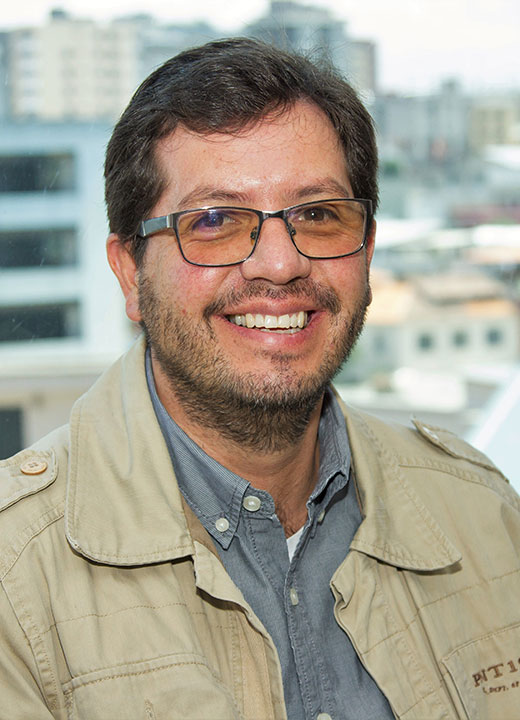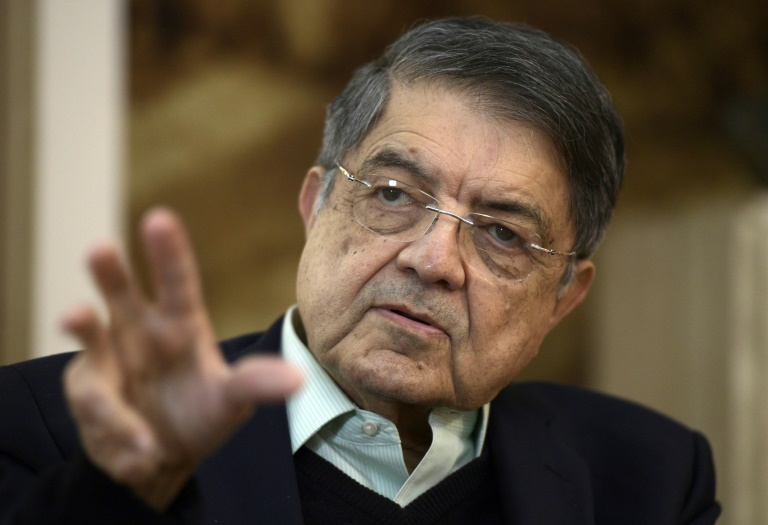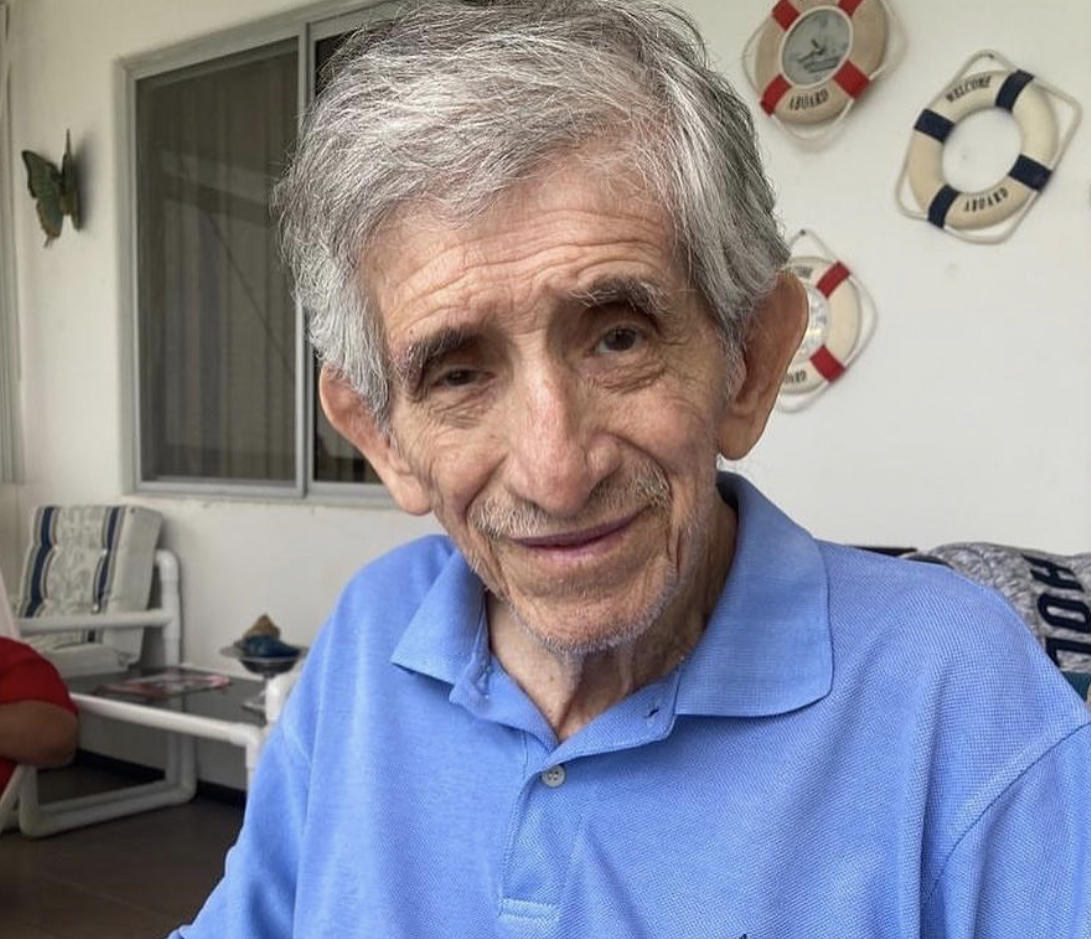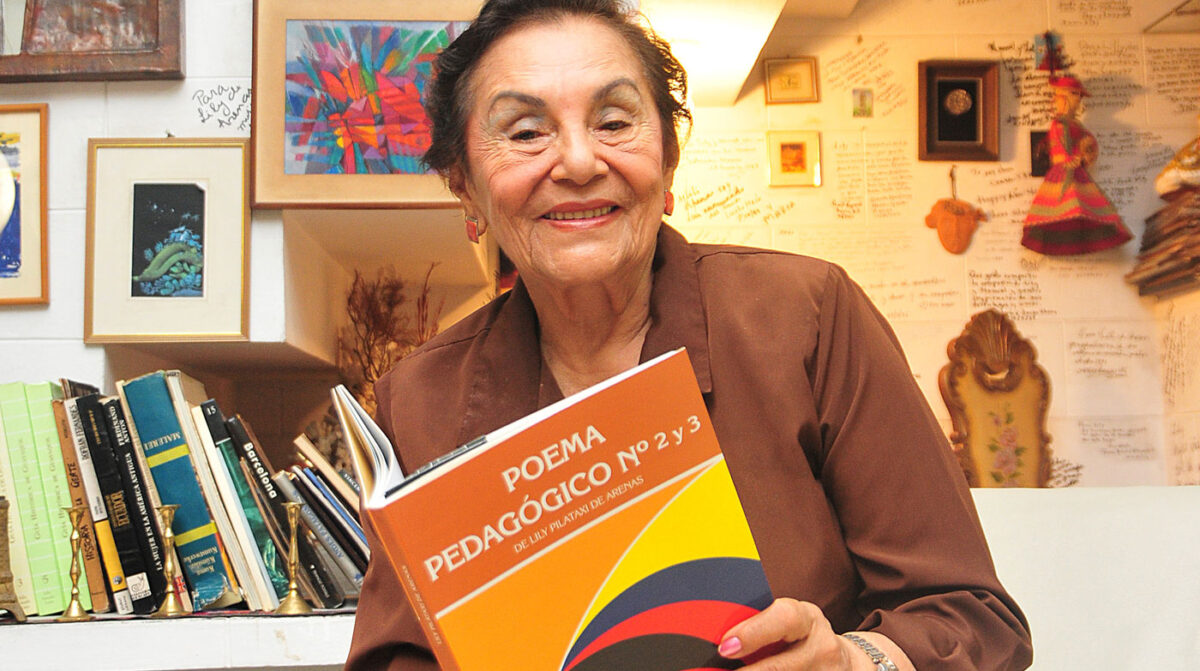Ingrid Bravo Ruiz (Manabí) is an Ecuadorian poet and politician. Her debut poetry book, titled “El dolor de tu ausencia” (2014), is a remarkable testament to her poetic talent and introspective nature. Published when she was just 17 years old, this collection explores the depths of love, longing, and the profound impact of loss. Furthermore, Ingrid Bravo Ruiz holds the distinction of being the youngest poet featured in the poetry anthology titled “Antología poética de mujeres manabitas: voces de ternura al corazón del pueblo” (Poetic Anthology of Manabí Women: Voices of Tenderness to the Heart of the People), compiled by Vicenta Alarcón Castro in 2019.
Continue reading “Ingrid Bravo Ruiz”Category: 21st Century Writers
Libertad Regalado Espinoza
Libertad Regalado Espinoza (Jipijapa, April 26, 1956) is a Numerary Member of the National Academy of History of Ecuador. She is a pedagogue, writer, and researcher. She has written books, scientific articles, and works related to history and intangible cultural manifestations of the coastal peoples of Ecuador, particularly Manabí. Her notable works include “Manabí y su comida milenaria” (Manabí and Its Ancient Cuisine, 2008-2029), “Las hebras que tejieron nuestra historia” (The Threads that Wove Our History, 2010), “Identidad e indigenismo en Manabí” (Identity and Indigenism in Manabí, 2016), “Santa Ana madre del río Grande” (Santa Ana, Mother of the Great River, 2019), and “El amorfino manifestación cutltural del pueblo montuvio” (The Amorfino, Cultural Manifestation of the Montuvio People, 2019). She has worked on various consultancies and has participated in national and international congresses. In 2020, the National Assembly of Ecuador awarded her the “Dra. Matilde Hidalgo de Prócel” decoration.
Continue reading “Libertad Regalado Espinoza”César Eduardo Carrión
César Eduardo Carrión (1976) is a prolific writer with a diverse literary repertoire. Holding a doctoral degree in Latin American Literature from the Universidad Andina Simón Bolívar, he is currently a professor at the Pontifical Catholic University of Ecuador. César has established himself as a respected figure in the Ecuadorian literary landscape, with a notable list of published works. His poetry books include “Revés de luz” (2006), “Pirografías” (2008), “Limalla babélica” (2009), “Poemas en una Jaula de Faraday” (2010), “Cinco maneras de armar un travesti” (2011), “Emboscada” (2017), “Es lodo y es polvo y es humo y es nada” (2018), and “Emboscada / Ambush” (translated by Kimrey Anna Batts, 2019). Additionally, César has contributed to the field of essays with several works, delving into various topics. Through his literary contributions and academic expertise, César Eduardo Carrión has made a significant impact on Ecuadorian literature.
Continue reading “César Eduardo Carrión”Juan Fernando Auquilla
Juan Fernando Auquilla Díaz (Cuenca, 1973) is an Ecuadorian poet, writer, and teacher. He is an accomplished poet, with five published poetry collections to his name: Divagaciones y profanaciones (2005), Ciudad Nómada (2010), Estaciones (2017), Sábanas Resucitadas (2019), and Ciudades (2020). Additionally, his works have been featured in poetry anthologies from Argentina, Spain, and Italy, showcasing the widespread recognition of his talent and literary contributions. As a member of the House of Ecuadorian Culture in Azuay, he has contributed to social projects focused on poetry and creative writing for vulnerable groups, including incarcerated individuals. He currently teaches at the National University of Education (UNAE).
Continue reading “Juan Fernando Auquilla”Kimrey Anna Batts
Kimrey Anna Batts (1983) is an American translator known for her exceptional work in translating the poetry and fiction of contemporary Ecuadorian authors, including Santiago Vizcaíno and César Eduardo Carrión. Originally from rural East Tennessee, she pursued her studies in Anthropology and Latin American Studies at the University of Michigan. In 2006, she made the decision to move to Ecuador, where her passion for literature and language flourished, leading her to embark on a successful career as a professional translator. Kimrey pursued a Master’s degree in Literary Translation at the University Pompeu Fabra in Barcelona, further honing her skills and deepening her understanding of the craft. Her dedication and talent shine through in her published works, which have graced the pages of prestigious literary publications such as The Brooklyn Rail, Lunch Ticket, Bitter Oleander Review, Ezra, Cordite Poetry Review, Mantis, Asymptote, and Exchanges, among others. Currently, Kimrey resides in Mexico, continuing to contribute to the world of literary translation with her remarkable expertise and love for languages and literature.
Continue reading “Kimrey Anna Batts”Issa Aguilar Jara
Issa Aguilar Jara (Cuenca, 1988) is an Ecuadorian poet and journalist. She has authored 3 critically-acclaimed poetry collections. Her debut poetry book, “Con M de mote se escribe Mojigata” (2018), fearlessly challenges the conservative aspects of her hometown with intimate and satirical verses, and delves into intimate themes, including her relationship with her father. Her second collection, “Poliamor town” (2020), delves into themes of love, diverse relationships, and the complexities of human connections. In 2022, her latest book, “Dos tragos de sinestesia o El diablo verde,” won the prestigious César Dávila Andrade National Poetry Prize, further solidifying her reputation as a notable voice in contemporary Ecuadorian poetry. Aguilar’s work has resonated with readers, particularly the younger generation, making her books popular in Cuenca.
Continue reading “Issa Aguilar Jara”Paulina Jaramillo Valdivieso
Paulina Jaramillo Valdivieso (Loja, 1963) is an Ecuadorian poet, writer, and children’s literature author. She has authored six books, including “Mitos que madrugan al sol” and “Estatura de tiempo y convergencia,” which reflect both her personal experiences and Andean heritage. Her father, the poet Alfredo Jaramillo Andrade, was a significant influence in her life. Her work in literature has earned her several accolades, including recognition as a distinguished woman in literature from the Ecuadorian Committee for Cooperation with the Inter-American Commission of Women in 2009. Additionally, she has served as the coordinator of the Alfredo Mora Reyes Cultural Center for the past 15 years and hosts a cultural radio program called “Escenario.”
Continue reading “Paulina Jaramillo Valdivieso”Mariasol Pons
Mariasol Pons Cruz (Guayaquil, 1979) is an Ecuadorian novelist known for her captivating storytelling. Pons has authored several notable works, including “La Chica” (2013), “El libro de Olga” (2017), and “¿De quién son estas piernas?” (2021). Her debut novel, “La Chica,” delves into the world of drug trafficking, while “El libro de Olga” draws inspiration from Bram Stoker’s Dracula and explores complex characters in historical contexts. In “¿De quién son estas piernas?” Pons ventures into the realm of the future, challenging notions of identity and autonomy. Pons’ distinctive writing style and ability to engage readers have garnered recognition and acclaim in the literary community. Currently, she resides in Guayaquil and works as an editorialist for the newspapers Diario Expreso, Diario de Manabí, and La República.
Continue reading “Mariasol Pons”Luis Espinosa Goded
Luis Espinosa Goded is a Spanish professor of economics, researcher, and columnist who currently resides in Ecuador. He is a faculty member at the College of Business Administration and Economics at the Universidad San Francisco de Quito. In 2019, he co-authored the book “Crónicas del socialismo del siglo XXI” with professor Andrés Ortiz Lemos. The book provides a critical perspective on 20th century socialism in Ecuador.
Continue reading “Luis Espinosa Goded”Raúl Rojas Hidalgo
Raúl Rojas Hidalgo (born 1944) is an Ecuadorian poet and novelist. His collection of poetry, “Como el agua” [Like Water], was published by the House of Ecuadorian Culture in 1988. In 1990, his novel “Una buena razón para matar” [A Good Reason To Kill] was featured in the First Ecuadorian Novel Biennial. In 2004, Rojas published another collection of poetry called “Salmos de amor a las seis de la tarde” [Love Psalms at Six in the Evening].
Continue reading “Raúl Rojas Hidalgo”Tamara Mejía Molina
Tamara Mejía Molina (Guayaquil, 1987) is an Ecuadorian poet and art critic. She is the author of several books, including “Esto soy yo, Marakaramazov,” “Historia esculpida de Manuel Velastegui,” and “Últimos días de una herida,” and has written more than 20 art criticism articles for cultural newspapers. Molina’s work as a poet has brought her international recognition, and she has been invited to participate in various poetry festivals in Ecuador and abroad. In 2022, her poetry book “Últimos días de una herida,” was awarded the Ileana Espinel Cedeño Poetry Festival Award.
Continue reading “Tamara Mejía Molina”Pablo Escandón Montenegro
Pablo Escandón Montenegro (May 30, 1974) is an Ecuadorian fiction writer and social communicator with a PhD in Communication and Contemporary Information from the University of Santiago de Compostela, Spain. His research focuses on topics such as heritage, museums, memory recovery, and digital literature. He has served as a professor for both undergraduate and postgraduate programs at various universities in Ecuador, and is the director of Arsquitensis. Currently, he works as a full-time professor in the Communication area at Simón Bolívar Andean University in Ecuador.
Continue reading “Pablo Escandón Montenegro”Sergio Ramírez Mercado
Sergio Ramírez Mercado (August 5, 1942) is a prominent Nicaraguan author and a recipient of the prestigious Cervantes Prize. In February of 2023, he accepted an offer of Ecuadorian citizenship from President Guillermo Lasso after being exiled from Nicaragua in 2021 and subsequently stripped of his nationality in 2023, along with 93 other individuals, by the government of Daniel Ortega, who branded them as traitors. He was a key figure in 1979 revolution, served in the leftist Government Junta of National Reconstruction and as vice president of the country 1985–1990 under the presidency of Daniel Ortega. He is currently residing in Spain, where he also holds citizenship, and had previously been granted citizenship by Colombia before being offered citizenship by Ecuador. Ramírez is widely recognized as Nicaragua’s “best-known living writer,” having authored numerous novels, short story collections, and works of non-fiction. Some of his work has been translated into English.
Continue reading “Sergio Ramírez Mercado”Luis Delgadillo
Luis Delgadillo Avilés (Guayaquil, 1942 – September 13, 2022) was an Ecuadorian poet and journalist. He was part of a group of poets dubbed, “Generación Huracanada” [Hurricane Generation]. In 1971, he won the third national poetry prize. His poetry books include: “El rayo que ilumina” (1971), “Poemas de la marcha” (1977), and “Carta para un hijo y otros poemas” (1997). His non-fiction books include: “Leonardo Escobar Bravo, El ministro de los campesinos” (2006) and “La pepa de oro y el montubio” (2007), which focused on themes of the peasant class. He was a member of the literary section of the House of Ecuadorian Culture in Guayas.
Continue reading “Luis Delgadillo”Lily Pilataxi de Arenas
Lily Pilataxi de Arenas (Guayaquil, 1930) is an Ecuadorian author of children’s literature, poet, writer, journalist, diplomat and educator. As a feminist and advocate of women’s rights she authored “La Mujer y sus Derechos” [Women and their Rights] (1990). She has taught in Ecuador and Germany, and most recently served as rector of the Educational Unit Steiner (Unidad Educativa Steiner) in Guayaquil. Her teaching experiences in Germany (from 1963 to 1978) are chronicled in “Poema pedagógico No 2 y 3” [Pedagogical Poem Nos. 2 and 3]. Perhaps her most popular children’s story is “Doña cucaracha y la bolita de nieve” [Don︣a Cucaracha and the Snowball] (2010) which was translated into English, Geman and French. She has received numerous honors both inside and outside of Ecuador. She was awarded and designated an honorary member of The International Society of Poets, Writers, and Artists (SIPEA). As a journalist, she wrote an opinion column for El Universo newspaper for 30 years, and was also an opinion columnist for El Telégrafo. She has given lectures in the United States, Europe and Africa.
Continue reading “Lily Pilataxi de Arenas”
